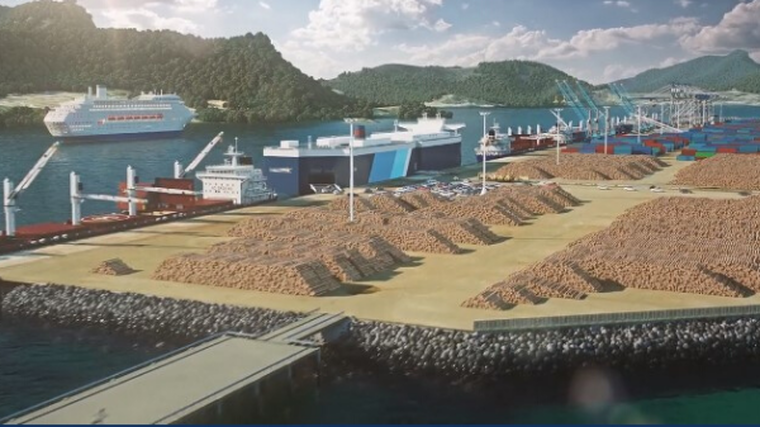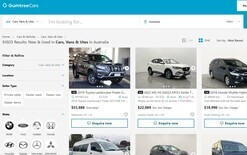Shifting car imports promises ‘lower’ costs

Importing cars into Northport could save the motoring industry money and be better for its workers, according to a report urging the closure of cargo operations at Ports of Auckland (POAL).
Associate Transport Minister Shane Jones says the government has begun a series of investigations to enable a decision on the future of POAL and the best alternative location to be made in the first half of next year.
The announcement follows the public release of the final report of the Upper North Island Supply Chain Strategy working group, which recommends closing POAL’s Waitemata Harbour freight operations, developing Northport near Whangarei and encouraging further expansion at Port of Tauranga.
In its report, the working group says relocating the handling of imported vehicles to Northport will bring a number of benefits. Northport is already exploring how its site could look in the future, pictured above, to cope with extra cargo.
“Processing of imported cars is currently carried out at multiple sites across South Auckland, all with relatively high land values,” the report says. “If cars were imported to Northport instead, these operations could easily be relocated to consolidated processing in Northland where land values and therefore storage and overheads costs would be lower.
“A workforce currently struggling with Auckland’s high house and rental prices would also benefit significantly from lower house and rental prices as well as potentially lower living costs should they choose to relocate to Whangarei.
“Potential re-purposing of industrial land in South Auckland could lead to higher land value uses, higher value jobs, higher productivity and further additional capital value and income for [Auckland] council.”
In its report, the working group concludes “Ports of Auckland’s freight operation in central Auckland is no longer economically or environmentally viable”.
“The working group’s preferred option is the managed closure of the Ports of Auckland’s freight operations, the development of Northport and the continued operation of the Port of Tauranga,” it says. “This was recommended after examining eight scenarios.”
Jones says shifting Auckland's port will be a “huge undertaking” and, if done right, will benefit all of New Zealand, not just Auckland and Northland.
“Nobody is keen on spending too much longer developing lengthy reports but this is a once-in-a-generation project and widespread buy-in is important, as is the need to make the best decisions for the long-term prosperity of our supply chain,” he says.
“It remains my view that Northport is the most sensible relocation option but I accept this is a whole-of-government decision and the report has given us a range of economic, social and environmental factors to consider. I look forward to reporting back to Cabinet in May 2020.”
Jones says the Ministry of Transport will explore funding and financing options, governance and commercial considerations, land use planning, legislative and regulatory considerations as well as transport and logistics analysis. He adds that this work will also consider environmental effects, including on New Zealand’s greenhouse gas emissions, and infrastructure investments in roads and rail.
The working group estimates it will cost the total capital cost of shifting the port operations to Northport to be $10.3 billion. This investment was expected to be largely commercially funded and driven.
Prime Minister Jacinda Ardern has said the present site of POAL’s operations was not “viable into the future” and a move from its downtown site was not a question of if, “but where and when”.





